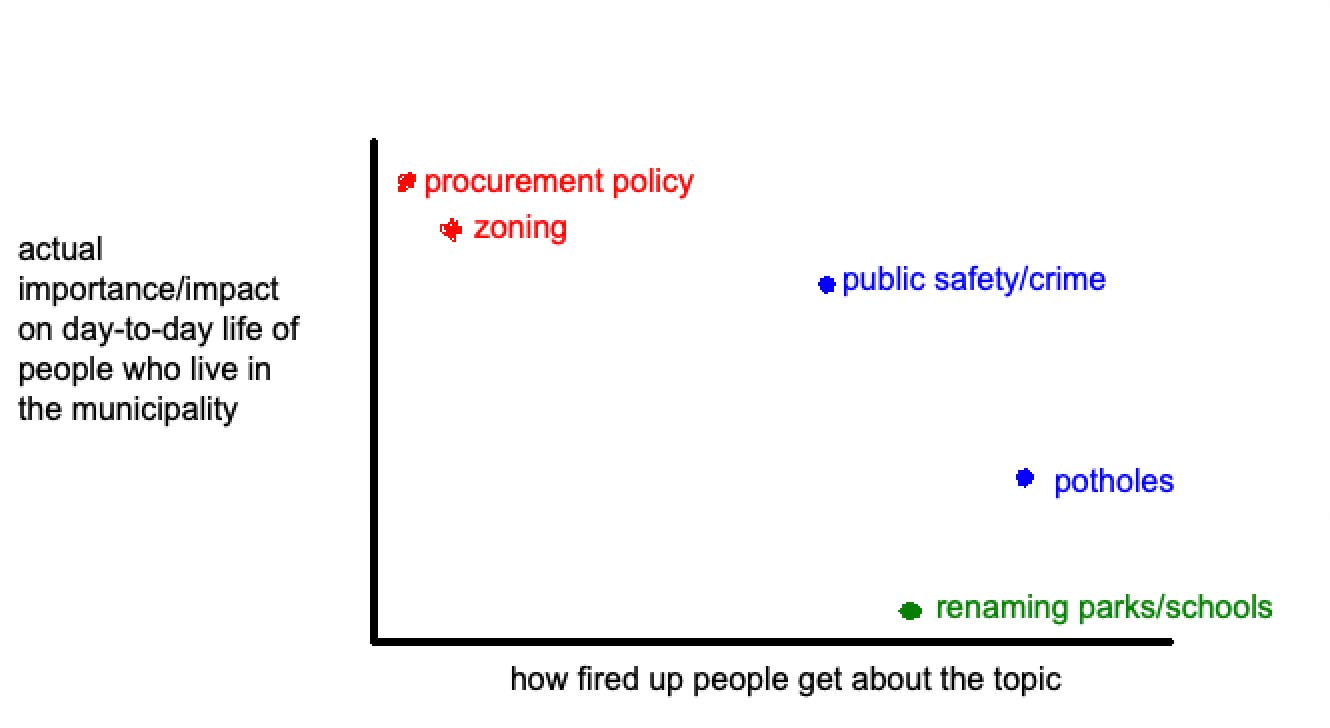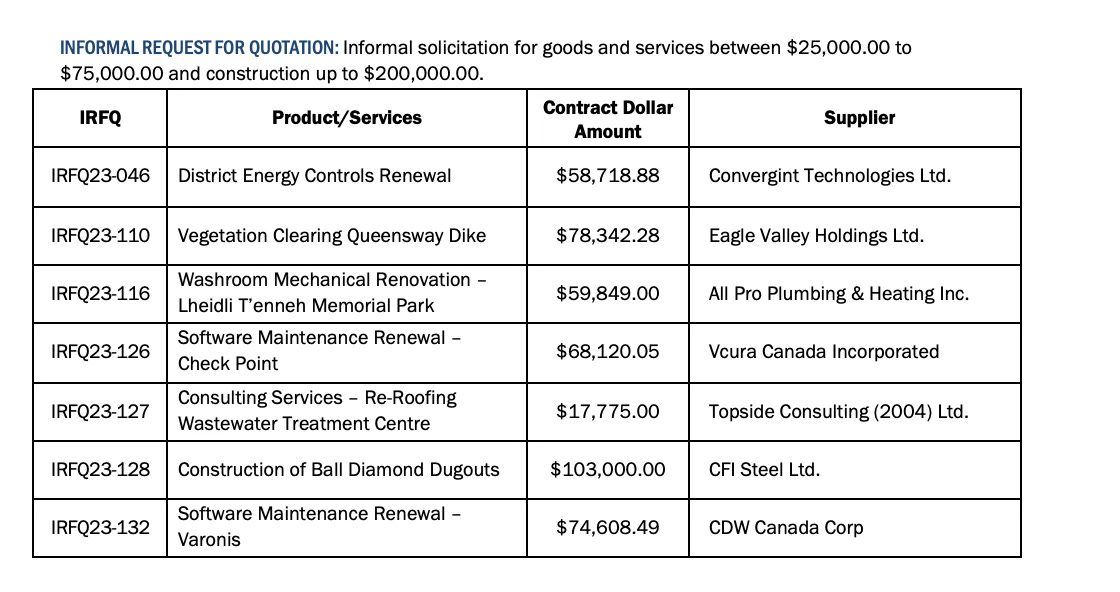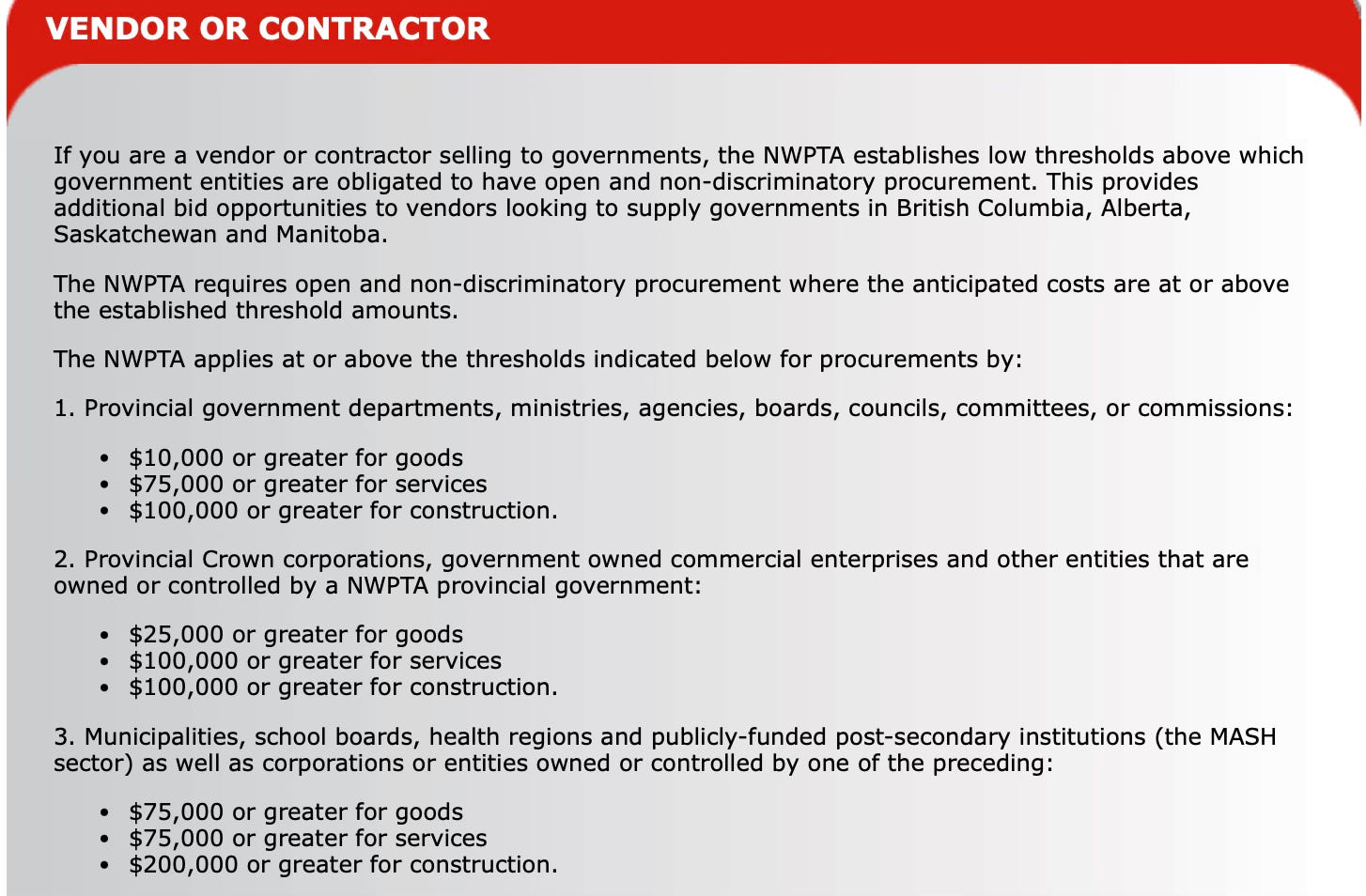How does the City buy things?
A story about procurement and why it matters (NOT BORING, I PROMISE)
Have you ever put much thought into how the City buys things? If the City needs “procure” paper for its printers or hire a parking lot line painting company - how do they go about fairly acquiring that good or service?
If you feel your eyes starting to glaze over at this topic, I feel you. It’s not a very sexy topic nor does it have the spice of some of the other incredibly interesting topics we’ve covered in this newsletter. *cough*
I’ve had this idea for a graph in my head that I think roughly articulates how I feel about a lot of the discourse and how the public follows municipal affairs:
The obvious example is the 3000 comment Facebook thread and 2 hour long town hall we must endure when we try to rename Kelly Road versus the crickets we hear when we talk about poor zoning or poor procurement practices resulting in gross misspending and poor capital management.
Anyways, I’m getting ahead of myself.
I’m going to REALLY try to make this interesting. I’m hoping to do so with a relatively personal example so strap yourself in for a true blue Somewhere North rant on procurement policy.
A quick bit of disclosure.
I think most of the readership knows this at this point but because there’s so many new folks since the last time we did this, it’s worth mentioning again. I own my own business in town - I’m a freelance photographer/videographer. I’ve done this work full time for about 4 years now and I work with a good portion of the large institutions in the region by way of this business (City of PG, Canfor, Northern Health, Tourism PG, etc).
I bring this up because this newsletter is going to come across as a bit of advocacy/lobbying where my business stands to gain and although my hope is to come back to the bigger picture, I just want that to be put out in front as transparently as possible:
I own a business. My business was hurt by what I see as a poorly managed policy. I hope this newsletter raises awareness of that policy and might help us work toward changing it.
Alright. On with the show.
How it works, in theory.
This is a simplification of a few complex things for the sake of brevity and if you feel like I’m missing any important details, please hit me up in the comments or email.
Essentially, when the City (or any government, really) needs to procure a good or service OVER X amount of dollars (that number changes depending on the thing being acquired), they need to put out an RFP (Request For Proposal) for vendors to apply.
You can view those bidding opportunities and reports here.
These are EXHAUSTIVE documents that usually state the maximum budget, the requirements, and any other details needed to fairly score applicants.
Companies like mine can bid on those RFPs by providing proposals that do their best at saying I can deliver X good or service at Y value and I’m the best to do it because Z.
All of these proposals go to the committee and are scored using a standardized rubric.
That’s it. It’s pretty boring. It seems simple and fair (and it is, largely) and it keeps the wheels of government moving.
How this works, in real life.
In Q2 2023, the city posted an RFP for Videography Services for $50,000.00 renewable up to 2 more years (to a maximum of $150,000.00). This is all public under P23-057 Marketing and Content Development - you’re welcome to read it in its entirety if you want to put yourself through that misery.
If you’re me (or any of the other video people in town), this is a pretty big deal.
That isn’t small money in this world and especially for my relatively young, relatively small company. Bedrock funding like this can allow small companies like mine to potentially get office space (paying money back into the community), hire more staff to grow services to better support local companies and offer jobs and much more.
It’s also just an incredible opportunity to show off what I am capable of and help grow my own portfolio which can be leveraged into future jobs and growth.
From both a money perspective, and an opportunity perspective, it’s a life-changing contract.
I’ll now skip ahead here a bit and just say I lost this RFP to a company based out of Vancouver called Set Sail Interactive. They’re a 10-person operation who have a separate and robustly staffed American office in Oregon as well. They boast Clients like the Government of USA and Canada, cities like Surrey and Coquitlam, BC Hydro, etc.
And let’s be real - they’re probably very nice people. The videos they made for PG are live now and from one creative to another - they’re pretty great. I think most folks should be happy with their quality and the story they tell about life in PG.
But the loss is a little more complicated.
Per their Team page, Set Sail has a full roster of staff who do business development, a strategist can likely develop proposals, and other full time staff to take on roles that small company’s owners (like me) have to do off the side of our desks. $50,000.00 recurring over 3 years could certainly allow a company like mine to hire a Business Development Officer or subcontract work like writing better proposals to a local Comms firm making us more able to aptly apply into these large RFPs - you can hopefully see the chicken and the egg dynamic playing out here.
Do I think D. Rigo Media could have done the job similar and/or possibly better? I do.
Did my proposal articulate my ability to confidently do the job within the budget? I think so.
Did my proposal look as good and as shiny as Set Sail’s? I did submit a FOIPOP request to see theirs and I can confidently say no. My lack of experience/understanding these documents, my lack of time, and my overall skillset in writing proposals wasn’t quite where theirs was.
The system, as designed, worked. The better proposal got it.
“Our hands are tied.”
After the decision was made, I was pretty (and hopefully, understandably) a bit upset.
I was more than prepared to lose the contract to another local agency (most of us applied) but finding out it went to a Vancouver/American based Agency - that was a tough one for me.
You, like me, might be thinking: is there no way to prefer local, qualified vendors when it comes to these contracts?
The answer is yes, but mostly no.
The biggest guiding force behind this question is The New West Partnership Trade Agreement. This is a 2010 relic agreement between BC, AB, and SK that (very broadly) “opens” trade between these provinces to create the most competitive market possible for providing goods and services to governments.
If you’re still reading by the way, congratulations, because we are officially in the deep end of this newsletter.
In my specific situation, it all came down to this:
It’s incredibly nuanced because although the initial RFP is $50,000.00, because it was “renewable” up to 2 more years, it was actually a $150,000.00 contract which then falls under the NWPTA which means the City is “obligated to have open and non-discriminatory procurement.”
When I went to the City and asked if there was any interest in preferring local vendors for contracts like this, I got a very simple “our hands are tied” response.
What could have happened differently?
To my very, very specific situation - could the city just have kept the contract at 1 year, capped at $50,000.00 with intent to repost the RFP when more content needed, EXCLUDING it from NWPTA entirely?
Yeah, I think so.
More broadly speaking, and less selfishly, there is actually a growing movement in the procurement world (words I never thought I would say) called “Social Procurement” and it speaks directly to the heart of this issue.
Essentially, it provides a framework that says there is an obligation for institutions and governments to take these kinds of social considerations into their procurement policy to make sure that their dollars are also advancing social causes.
So let's say the PG City Council has a motion to spend X amount of contract dollars toward women-owned businesses in 2024. Social Procurement can provide a framework for them to include questions/criteria on government RFPs that might allow eligible and qualified women-owned businesses to be preferred and still abide by agreements like NWPTA.
Buy Social Canada is social enterprise that has a ton of great information on this topic.
These are good practices to adopt and develop policy around. There are ways that the city can legally make sure it is directing contract dollars to local businesses, Indigenous owned businesses, etc, etc.
I could spend time here going on about the folks I’ve tried to speak with at the City about this - from Administrators to City Councilors - all of which assure me they “care” about this issue but, at the end of the day, I think I just feel sympathetic toward them.
My sense is the classic saying - when everything is a priority, nothing is a priority. This is especially a forlorn issue because it’s actually a system that is “working.” For all intents and purposes, the system I entered into functioned pretty fairly to its design and awarded the contract to a capable firm at a budget that was decidedly fair.
Trying to summarize it all.
This whole fiasco happened well over a year ago now and while my feelings on the whole thing have softened, the thing I remain sharply interested in is not making sure D. Rigo Media gets all the cool video contracts, but that our City’s procurement policy, when legal and able to do so, tries its best to source its services from local, qualified vendors and more broadly, thinks about social procurement more when writing RFPs.
I want the local parking lot line painting company to get the City contract over the big Edmonton company, if they’re able to do the work within the budget.
There are ways for our City to prioritize local vendors that stay within the legal boundaries of the NWPTA and other procurement legislation - they are currently just not doing them.
Not because they’re lazy, not because they don’t want to, but (in my opinion) because it’s not that interesting and politically, I don’t think it’s really seems like one of the pressing issues of our time (see my graph from earlier).
The solution? I struggle with this because like all things we talk about in this newsletter, generating awareness is step 1 but I’m never fully sure of step 2. You now know a little bit more about this issue than you did before and hopefully you carry that with you into your conversations and into the way you vote and I hope that’s worth something.
Alrighty. That’s it.
If you made it to the bottom of this one, I really commend you. This is about as dense a newsletter as I can ever imagine writing so congratulations for caring about something that is almost impossible to care about.









A bit of municipal protectionism could be fundamental to the city economy. All of our problems as a city are related, and come down to a lack of budget. City budget, and citizen budgets. A healthy economy requires as many people as possible to have purchasing power. Is that Vancouver business going to spend the money they got from Prince George (and therefore, PGers)? Of course not. We've taken money out of local circulation by awarding a contract to outside companies.
It's the New Zealand wood for the siding on the downtown pool all over again.
I think you're wrong, Darrin. The city spending city money on non city companies isn't boring. It gets a lot of people fired up.
oh, I feel this post. As someone who puts out RFPs and oversees contracts for the province (forestry related), I have done my time sitting with legal services trying to explain why the WTO agreement is not suited to niche services in BC forestry. A company in the UK, as an example, offering the same services as a company in BC still does not have the experience of working in the diverse forests, ecosystems, terrain, etc of BC and to our own very specific standards. I have one example where a contract didn't go well (not a complete fail, but it cost us more in time and the contract came close to getting pulled from the contractor), because of the WTO rules. We managed to get additional legal advice and support to "exempt' our work based on the issues with that one contract. But the time involved, and costs (because even Ministry legal advice is cost-neutral), was months and months. I learned a lot, though, and I've moved into a newer position where the contracts don't hit the NAFTA or WTO thresholds which makes life a bit easier. LOL
In any case and to get back to your point, the Province revised their RFP process a couple of years ago to allow for inclusion of social and environmental procurement considerations. Some Ministries/ business areas are making it work. First Nations collaboration and employment opportunities are the examples that I've seen included in some RFPs when poking around BC Bid. However, there hasn't been any training on where and how minions like me can structure and score the RFP appropriately and effectively, so we can include a social criteria or two into our very formulaic service requirements. The other issue is that there has to be a change in mindset and procurement 'culture' to incorporate some beneficial criteria in an RFP, because typically there may be a bit more time/cost involved to achieve goals.
Very interesting post, Darrin - you got me fired up!